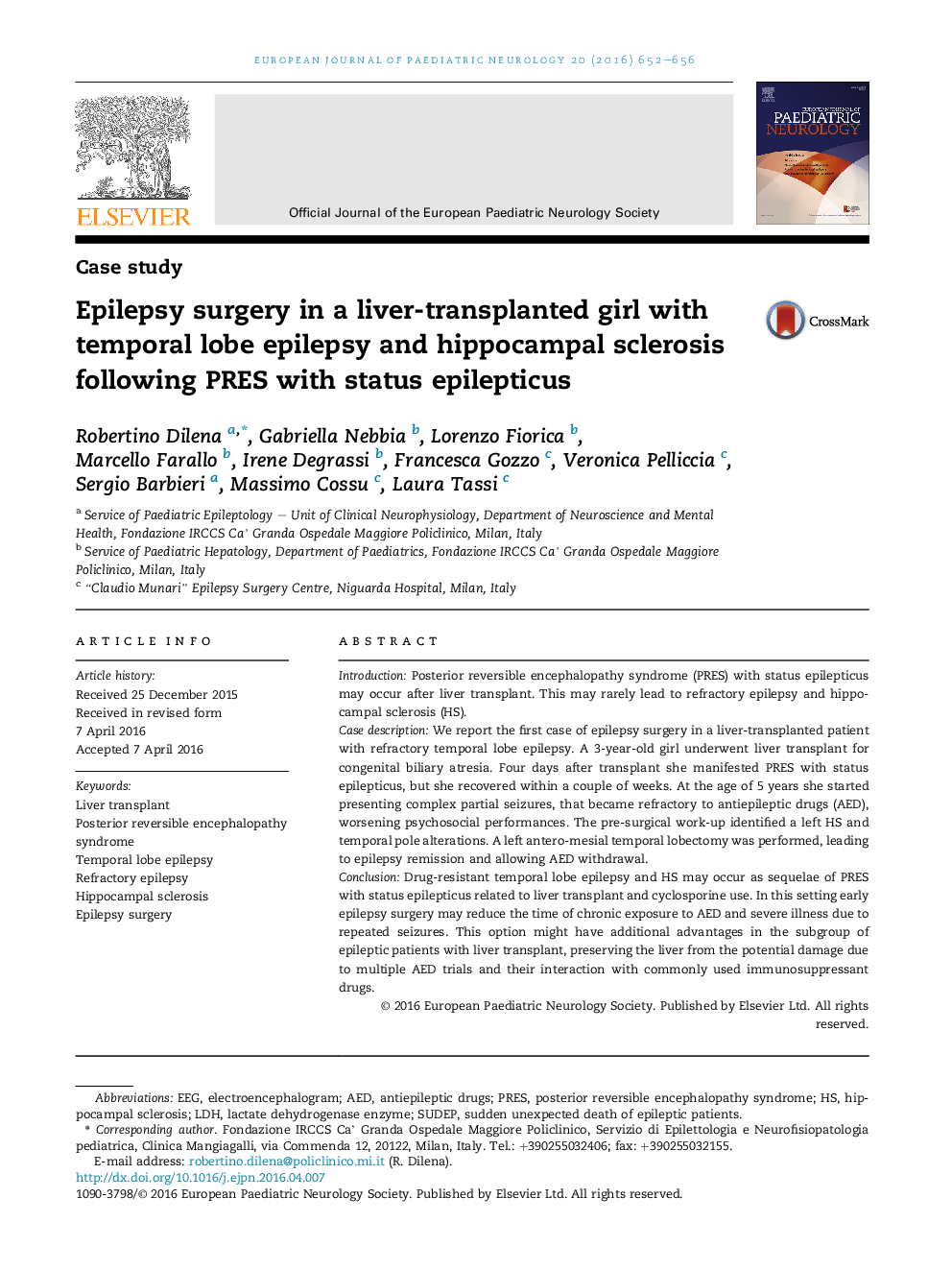| Article ID | Journal | Published Year | Pages | File Type |
|---|---|---|---|---|
| 6016490 | European Journal of Paediatric Neurology | 2016 | 5 Pages |
â¢PRES with status epilepticus may occur after liver transplantation.â¢Risk factors in this setting are immunosuppressant, hypertension, renal failure.â¢We report a transplanted girl with refractory epilepsy and hippocampal sclerosis.â¢Epilepsy surgery led to seizure remission and antiepileptic drug withdrawal.â¢Antiepileptic drug withdrawal is a major advantage in liver-transplanted patients.
IntroductionPosterior reversible encephalopathy syndrome (PRES) with status epilepticus may occur after liver transplant. This may rarely lead to refractory epilepsy and hippocampal sclerosis (HS).Case descriptionWe report the first case of epilepsy surgery in a liver-transplanted patient with refractory temporal lobe epilepsy. A 3-year-old girl underwent liver transplant for congenital biliary atresia. Four days after transplant she manifested PRES with status epilepticus, but she recovered within a couple of weeks. At the age of 5 years she started presenting complex partial seizures, that became refractory to antiepileptic drugs (AED), worsening psychosocial performances. The pre-surgical work-up identified a left HS and temporal pole alterations. A left antero-mesial temporal lobectomy was performed, leading to epilepsy remission and allowing AED withdrawal.ConclusionDrug-resistant temporal lobe epilepsy and HS may occur as sequelae of PRES with status epilepticus related to liver transplant and cyclosporine use. In this setting early epilepsy surgery may reduce the time of chronic exposure to AED and severe illness due to repeated seizures. This option might have additional advantages in the subgroup of epileptic patients with liver transplant, preserving the liver from the potential damage due to multiple AED trials and their interaction with commonly used immunosuppressant drugs.
